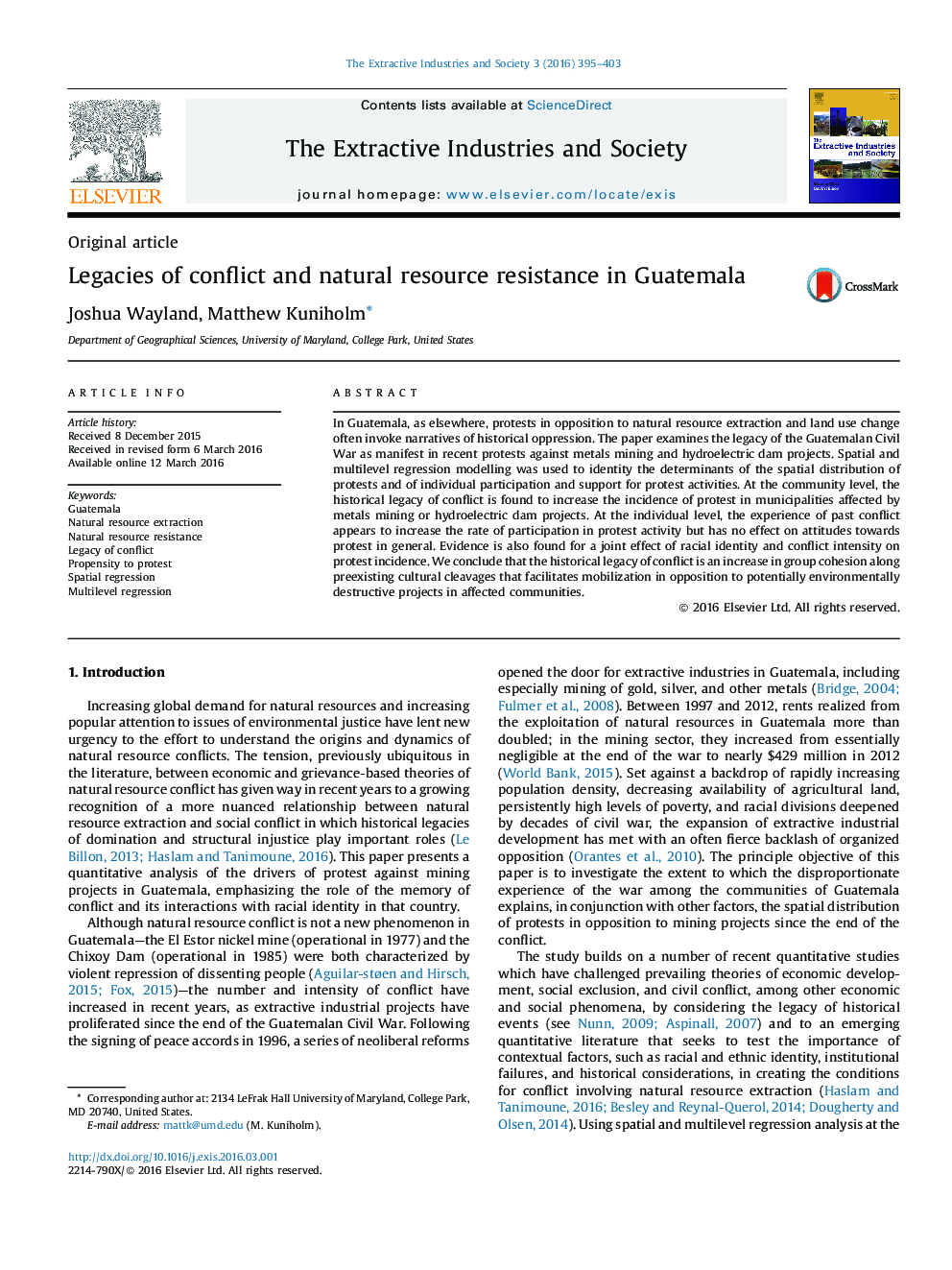| Article ID | Journal | Published Year | Pages | File Type |
|---|---|---|---|---|
| 10502223 | The Extractive Industries and Society | 2016 | 9 Pages |
Abstract
In Guatemala, as elsewhere, protests in opposition to natural resource extraction and land use change often invoke narratives of historical oppression. The paper examines the legacy of the Guatemalan Civil War as manifest in recent protests against metals mining and hydroelectric dam projects. Spatial and multilevel regression modelling was used to identity the determinants of the spatial distribution of protests and of individual participation and support for protest activities. At the community level, the historical legacy of conflict is found to increase the incidence of protest in municipalities affected by metals mining or hydroelectric dam projects. At the individual level, the experience of past conflict appears to increase the rate of participation in protest activity but has no effect on attitudes towards protest in general. Evidence is also found for a joint effect of racial identity and conflict intensity on protest incidence. We conclude that the historical legacy of conflict is an increase in group cohesion along preexisting cultural cleavages that facilitates mobilization in opposition to potentially environmentally destructive projects in affected communities.
Related Topics
Life Sciences
Environmental Science
Management, Monitoring, Policy and Law
Authors
Joshua Wayland, Matthew Kuniholm,
